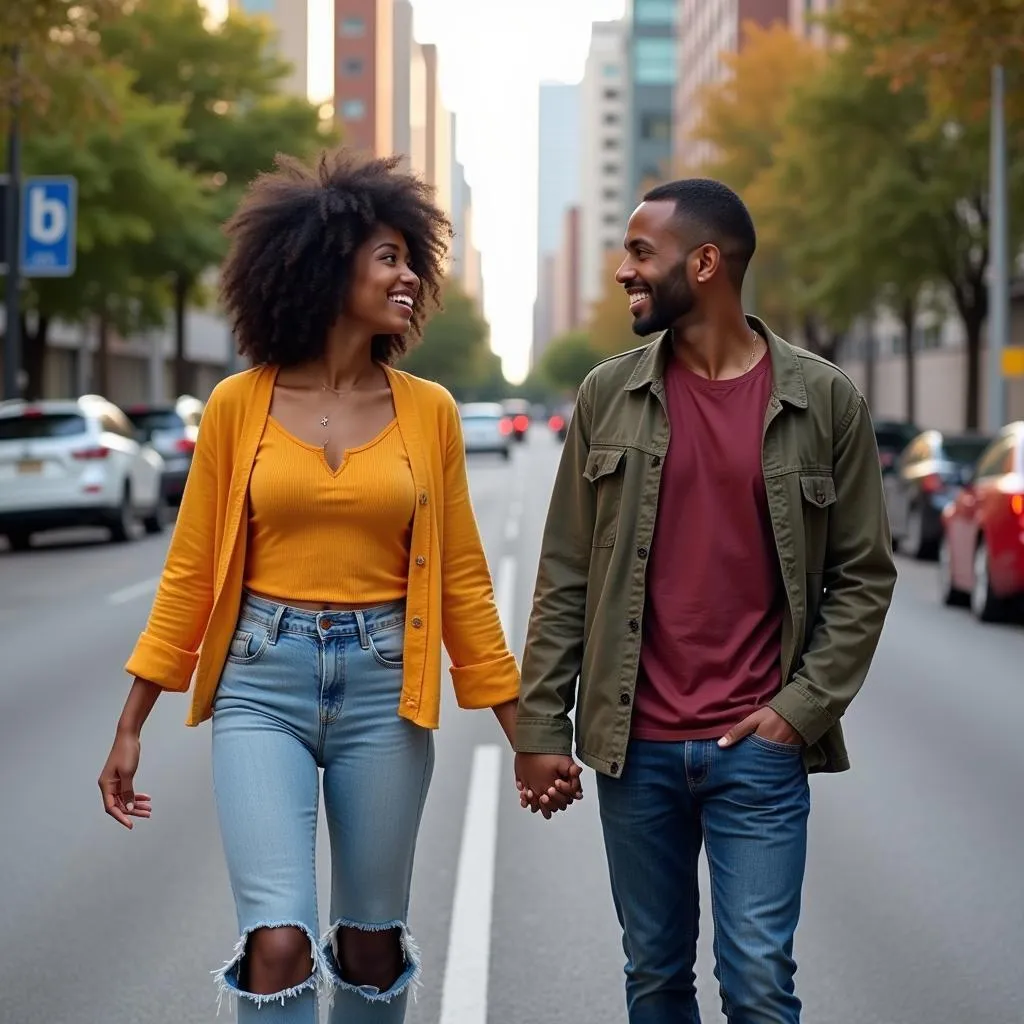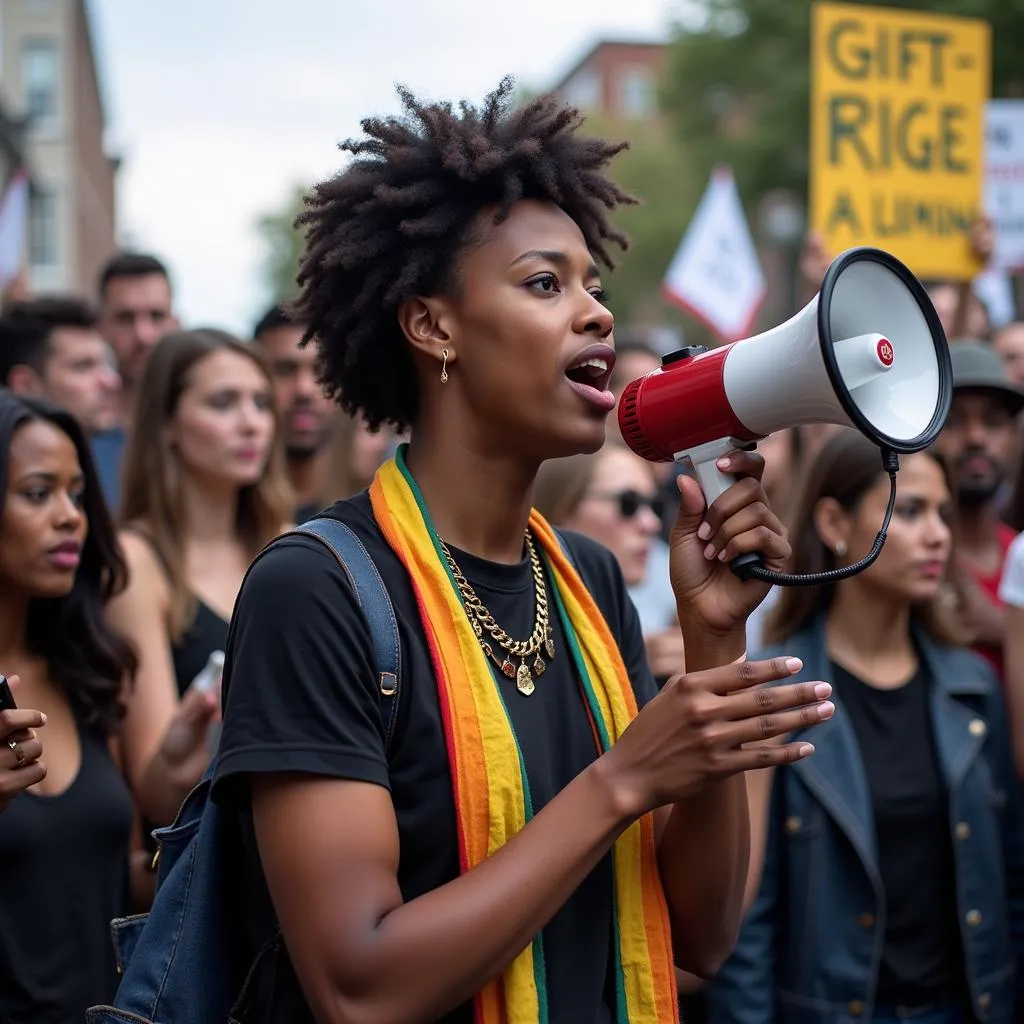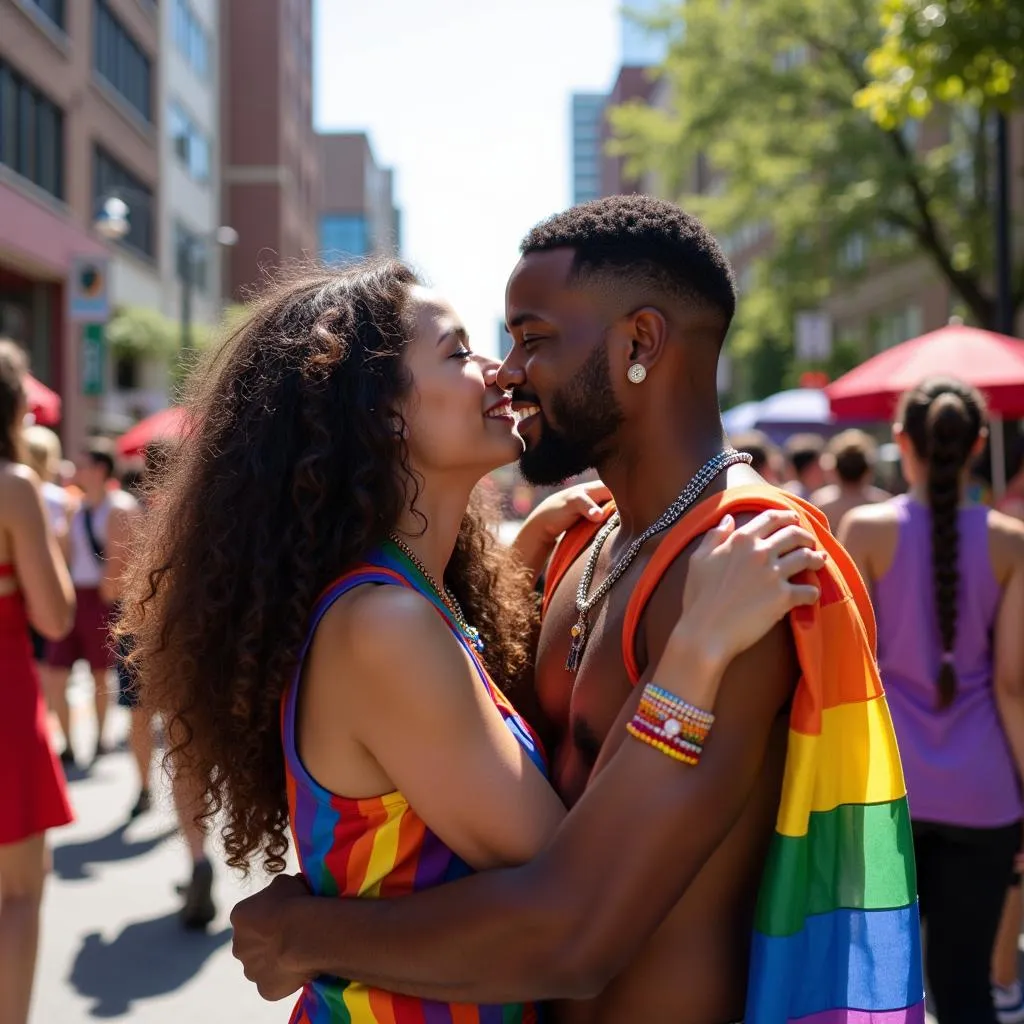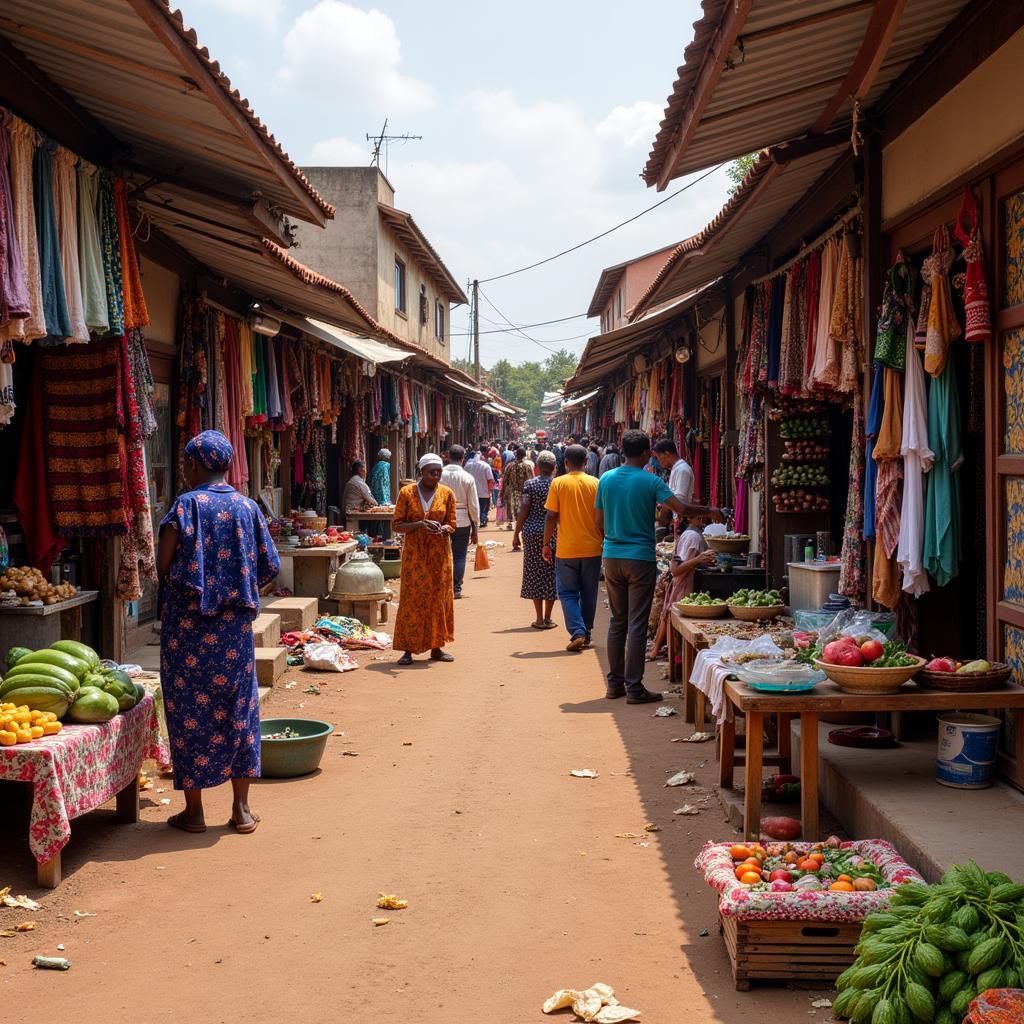Navigating Identity: African American Homosexuality
African American Homosexuality is a multifaceted aspect of the Black experience, shaped by cultural, historical, and social forces. This exploration delves into the complexities and nuances of this identity, examining its intersection with race, religion, and societal perceptions.
 African American LGBTQ+ Couple Holding Hands
African American LGBTQ+ Couple Holding Hands
Historical Context: From Silence to Visibility
The history of homosexuality within the African American community is intertwined with a legacy of slavery, segregation, and systemic oppression. During the Jim Crow era, expressions of same-sex desire were often silenced, deemed taboo, and associated with the perceived immorality of Black people. This historical context created a climate of fear and secrecy, forcing many to conceal their true identities.
The Civil Rights Movement of the 1960s, while primarily focused on racial equality, laid the groundwork for other marginalized groups to advocate for their rights. The Stonewall Riots in 1969, a pivotal moment in LGBTQ+ history, further ignited a movement for gay liberation that resonated within the Black community.
Intersectionality: Race, Sexuality, and Identity
For many African American LGBTQ+ individuals, their identity is a complex interplay of race, sexuality, and personal experiences. They navigate a world where both their blackness and their queerness are subject to prejudice, discrimination, and stereotypes. This intersectionality requires a nuanced understanding of the unique challenges they face.
 African American LGBTQ+ Activist Giving Speech
African American LGBTQ+ Activist Giving Speech
Religion and Spirituality: Challenging Traditional Norms
Religion plays a significant role in the lives of many African Americans, and for LGBTQ+ individuals, reconciling their faith with their sexuality can be a complex and often challenging journey. Some denominations hold conservative views on homosexuality, leading to feelings of guilt, shame, and rejection within faith communities. However, there is a growing movement of LGBTQ+-affirming churches and spiritual spaces that offer support, acceptance, and a sense of belonging.
Family and Community: Acceptance and Rejection
Coming out as LGBTQ+ within the African American community can be met with varying degrees of acceptance and rejection. While some families embrace their LGBTQ+ loved ones, others struggle to reconcile traditional beliefs with their child’s sexual orientation or gender identity. This can create a sense of isolation and estrangement for LGBTQ+ individuals seeking support and understanding.
Moving Forward: Advocacy, Representation, and Allyship
The fight for LGBTQ+ equality continues, and within the African American community, there is a growing movement of activists, artists, and advocates who are challenging stereotypes, raising awareness, and demanding equal rights and representation. Organizations like the National Black Justice Coalition (NBJC) and GLAAD are working to amplify Black LGBTQ+ voices and address the specific issues they face.
 African American LGBTQ+ Couple Embracing at Pride Parade
African American LGBTQ+ Couple Embracing at Pride Parade
Conclusion: Embracing Diversity and Fostering Inclusivity
African American homosexuality is an integral part of the rich tapestry of Black identity. By acknowledging the historical context, understanding the intersectional challenges, and embracing diversity, we can create a more inclusive and equitable society for all. It is through empathy, education, and continued dialogue that we can dismantle prejudice and celebrate the resilience and beauty of Black LGBTQ+ lives.

